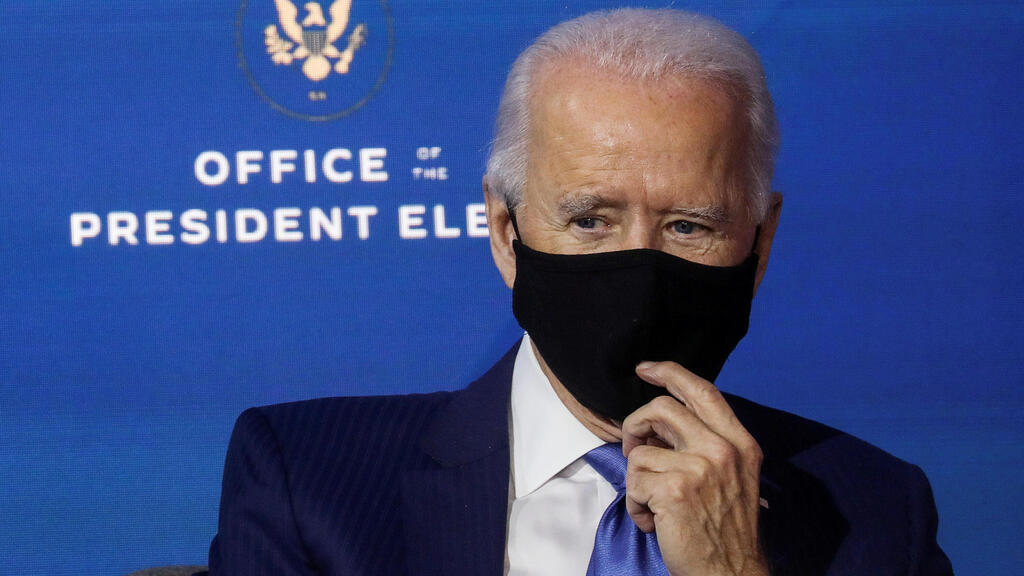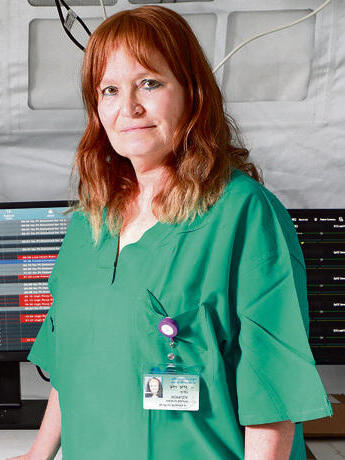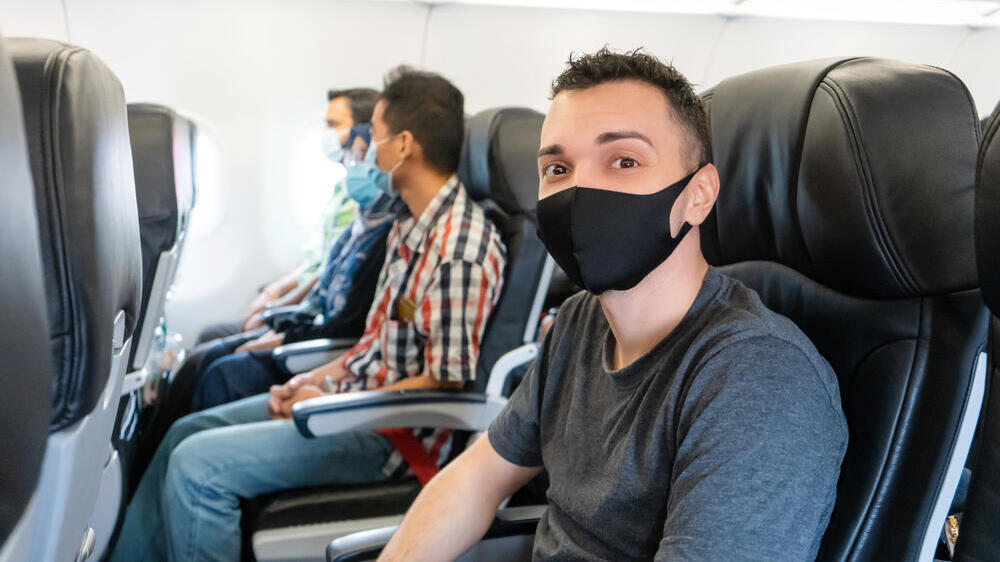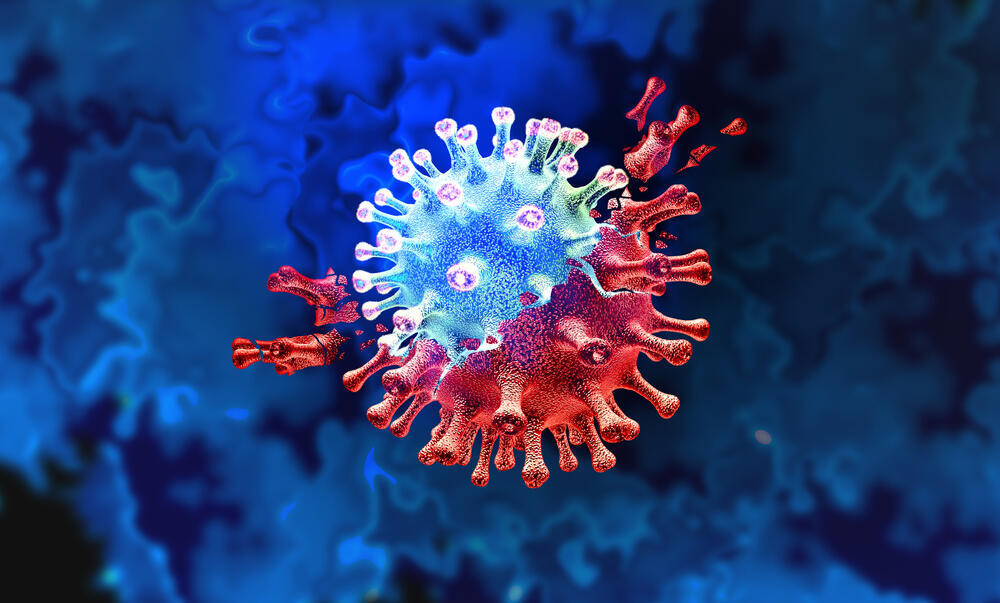A new strain of the coronavirus is spreading around the world and causing concern - and some countries are already recording upticks in infections and hospitalizations.
More stories:
"We don't know if the new strain causes more severe illness, but it probably has a lot of new mutations, and it has started to rear its head," Chair of the Association for Infectious Diseases Prof. Galia Rahav told Ynet Live. "I can't say that the illness is more difficult, but it exists, and the coronavirus in general is rearing its head, even the previous variants. Morbidity is increasing, and there are more cases of infection."
The new variant, BA.2.86, has been nicknamed Pirola, after an asteroid that orbits the planet Jupiter. "One case has been discovered in Israel," according to Rahav, "and there were also cases in England, Denmark and the United States."
New York has reported an increase in the number of coronavirus cases in recent weeks, and experts are beginning to call on residents in risk groups to resume masking indoors. The recommendations are mainly aimed at the chronically ill, immunosuppressed and elderly, with some experts even calling on 81-year-old U.S. President Joe Biden to set a personal example and walk around with an N95 mask.
The U.S. Centers for Disease Control (CDC) has not revised its existing guidelines and is not urging Americans to mask up. The agency will only advise mask-wearing if COVID-related hospitalizations reach a threshold of 2,010 or more per 100,000 residents. The most recent data shows a significantly lower risk level compared to the CDC's thresholds, with the current rate of coronavirus patients at approximately four per 100,000 individuals.
So the coronavirus is not behind us, contrary to what we thought?
Rahav: "It's really not behind us, but there is no doubt that the coronavirus today is completely different from the one we knew at the beginning. It's a disease we live with. The fear is that the new strain will manage to evade the vaccines. The situation with the coronavirus right now is relatively good, because we got vaccinated and also got sick, so our immune system knows most of the strains. The fear is that a new strain will come that it won't recognize, and then a more severe illness may develop, which will spread more."
3 View gallery


Some want US President Joe Biden to wear a mask in order to set an example
(Photo: Reuters)
In what way exactly does the coronavirus rear its head?
"There is much more morbidity, many more patients, although in Israel it is not yet seen in hospitals. It is seen mainly in places with a high elderly population, such as geriatric centers. There are countries that report more hospitalizations, although not more mortality."
There is a feeling that the coronavirus is coming to Israel on airplanes. Is this true?
"A plane is a closed and crowded place, with a lot of people, so there is definitely a risk of getting infected on flights, so I recommend wearing a mask on the flight. Absolutely."
What is the situation in which you, the experts, raise a red flag?
"When you see an increase in hospitalizations, and later an increase in mortality. What scares us is that the new strain will cause more severe illness."
Are there populations that are finding it harder to handle coronavirus now?
"These are mainly elderly people with underlying illnesses, especially those who live together, overcrowded, in institutions such as geriatric centers and sheltered housing. They are more at risk. So are immunocompromised people; In these people, we see cases of old coronavirus being carried over. They are unable to get rid of the virus."
What measures should we take now?
"We need to keep our finger on the pulse. Those who are sick, stay at home, don't come to work. And don't go out. Don't get infected. And stay away from people who are coughing. There are quite a few people who get infected with coronavirus again and again, but we haven't found a specific profile for who gets infected more or less."
Does the current coronavirus have anything to do with people who have not been vaccinated?
"Those who didn't get vaccinated got more serious illness along the way. But these people are not to blame for the fact that coronavirus is rearing its head now."
Prof. Cyrille Cohen, an expert on the immune system from Bar-Ilan University, told Ynet Live this week, "Every strain that circulates in the world will also circulate in Israel, and there are currently two that are being followed. The first, known as Eris, was discovered a few weeks ago, and we see that it is becoming the dominant variant in several countries, while in our country it was detected in a quarter of new cases.
"The second variant was discovered in the last few days and suddenly appeared on the radar of the World Health Organization. It worries us because it has about 36 mutations, which is a lot. It reminds us of the jump from the Delta period to the Omicron period.
 Prof. Galia RahavPhoto: Dana Kopel
Prof. Galia RahavPhoto: Dana KopelSuddenly there is a variant that we do not know how to deal with, because we don't know what it is capable of doing. But we need to calm down and say that there is currently no evidence that it causes a serious illness. On the other hand, many mutations are always an opening for evading the immune system."
Meanwhile, the latest coronavirus strains continue to spread, including EG.5 known as Eris (dwarf star) and the new BA.2.86 strain, Pirola. The new strains tend to produce similar symptoms, mainly fever, runny nose, dry cough, muscle pain and loss of sense of taste and smell. According to the information distributed by Moderna and Pfizer, the updated vaccines that should be released in the coming weeks also provide protection against the new variants.
Over the past day, the U.S. CDC reported that the Pirola strain is capable of infecting both recovered and vaccinated people - more so than previous strains. However, it is still too early to determine whether the new strain causes a more severe disease compared to earlier variants. The CDC also said that the current increase in the rate of hospitalizations in the U.S. was probably not caused by the new strain.



